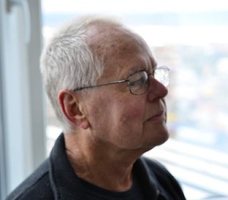
Jay Haley delivered an enchanting invited address to the 6th International Conference of Ericksonian Approaches to Hypnosis and Psychotherapy in 1994. If you have a chance to listen to it, I guarantee you will learn a lot as well as be entertained by this “Man with Style” as Jeff Zeig described him. The short version of his talk is supervision IS therapy.
When a client comes to therapy, they have a problem with themselves, with others, or their interactions. We therapists do our best to help them to get past their rigidities and blocks, to expand their options, to reconnect them with resources that they have become disconnected from or not yet learnt.
When a therapist comes for supervision, they have a problem with themselves, with clients, or their interactions. As supervisors we want to do our best to help them get past their rigidities and blocks, to expand their options, to reconnect them with resources that they have become disconnected from or not yet learnt.
I agree with Haley, and don’t see the relevance of special training for supervisors. For me, any therapist who is competent in helping clients will be competent to help other therapists - to supervise them.
Over the decades, I have noticed many sticking points that bring clients to therapy, and bring therapists to supervision. Three of the most common I have noticed are adhering to a particular theory of how people should be, to take a stance of being an expert giving advice, and wanting to fix the other.
The limitation of adhering to a particular theory of how people should be, is that there is no space for the other, no need to the other as a legitimate other, no relevance to being open to the other’s perspective. This leads to a mood of certainty, righteousness and rigidity. In the extreme it is kill or be killed.
What’s missing here is listening to the other as a legitimate other with a legitimate perspective, however different it may be, with even the possibility of learning something useful from the other! Instead of a fight to the death, there is the possibility of a lasting and expansive peace.
The limitation of taking a stance of being an expert is that as an expert, the other is inferior, and needs to be informed of the falseness of their position, whatever the cost, for their sake. The old school phrase “I’m doing this for your sake, because I love you.” only leads to resentment and the silent promise for revenge that necessarily follows.
What’s missing here is putting the other back in the centre of their own expertness, reminding them that they are the expert in their experience, that they know more about themselves than we ever could. This can restore the other’s personal authority as being the author of their own experience without the “benefit” of our “wise” editorial imposition.
The limitation of moving too quickly into fixing a problem is forcing the other into a bind of discovering that for the problem to be resolved so quickly, it could not have been a genuine problem, or if they don’t get fixed immediately, they are labeled as resistant or having secondary gain. I have noticed that it’s easy for us to be pulled towards fixing the other to avoid our own discomfort of sitting with the other’s suffering.
What’s missing here is to tolerate our own discomfort and validate the legitimacy of the other’s suffering, anguish, frustration, pain … whatever the other’s experience happens to be. Many clients will only move on when their present experience has been sufficiently validated, heard, legitimised. Then, and only then, are they ready to make on.
So my invitation is instead of adhering to any particular theory, we explore each individual’s theory of change, instead of being the expert, we take a one-down position and let the client lead, instead of trying to fix the other, we respectfully and genuinely validate their suffering.
This invitation applies to our interactions with clients, and so, identically, to our interactions as supervisors.
Rob
“Very little grows on jagged rock.
Be ground.
Be crumbled, so wildflowers will come up where you are.
You've been stony for too many years.
Try something different.
Surrender.”
Rumi
